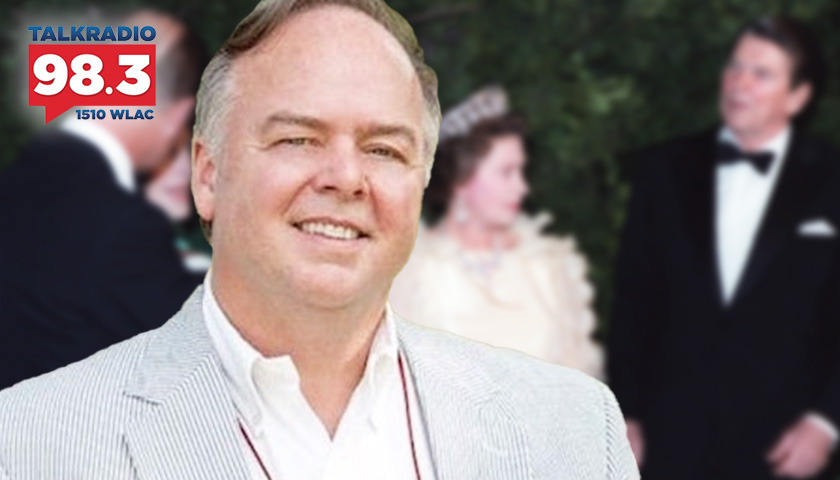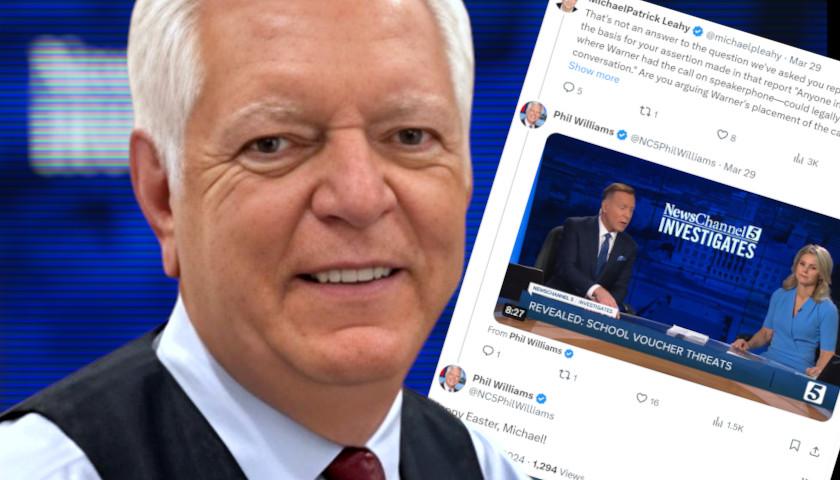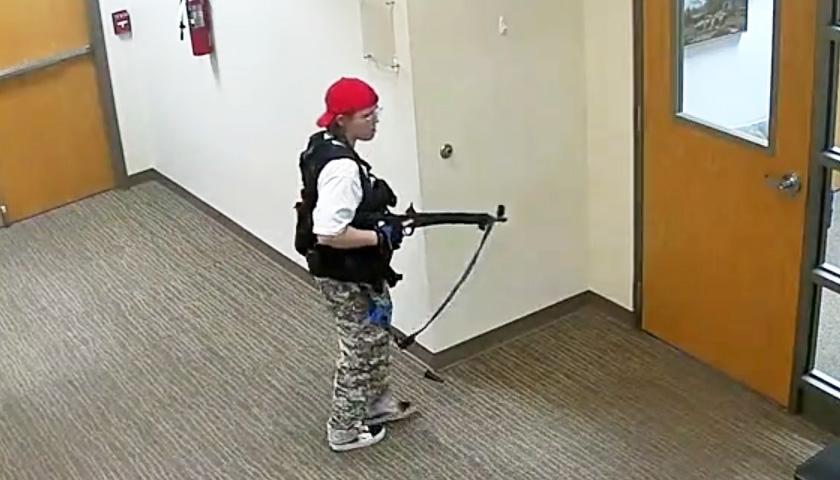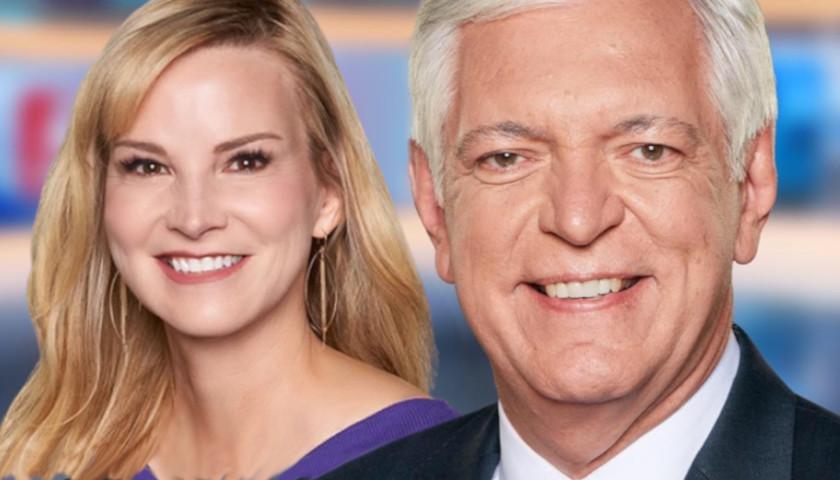Live from Music Row, Friday morning on The Tennessee Star Report with Michael Patrick Leahy – broadcast on Nashville’s Talk Radio 98.3 and 1510 WLAC weekdays from 5:00 a.m. to 8:00 a.m. – host Leahy welcomed presidential historian Craig Shirley to the newsmaker line to comment upon Queen Elizabeth II’s death and her special bond with former President Ronald Reagan.
Leahy: We are joined on our newsmaker line by our very good friend, Reagan biographer, and presidential historian Craig Shirley. Good morning, Craig.
Shirley: Hi, Mike. How are you?
Leahy: Great to have you on this morning.
Shirley: Thank you for inviting me.
Leahy: Let’s just start with the passing of Queen Elizabeth II. What was her relationship with American presidents?
Shirley: She knew 15 presidents from the time of her coronation back in the early 1950s right up until her passing several days ago.
She was wise in that she once asked who was her favorite president, and she demurred on answering, but most historians will tell you that her favorite president was Ronald Reagan.
They bonded together because of the love of outer doors. They bonded together because of their love of horses and morning horseback riding. In fact, Reagan said that one of the perks as being president was the morning ride with Queen Elizabeth.
So they visited together half a dozen times up at the ranch in California and on her yacht Britannica where the Reagan’s celebrated their 31st wedding anniversary. Of course, after he was president, he did a tour of Europe.
He went to Moscow to visit Gorbachev, with whom he had become good friends and went to France to get a high award, and went to London, where he was knighted. One of only two presidents to be so knighted by the crown and by Queen Elizabeth. So they had a long, warm relationship all the time they knew each other.
Leahy: On another topic, Craig, you are, I think, the preeminent presidential historian in America today.
Shirley: You are too kind.
Leahy: You’ve written many books, Reagan biographies, books on Trump, books on World War II, books on Newt Gingrich. I actually helped edit a couple of your books, which is an awful lot of fun.
Shirley: Yes, that was fun.
Leahy: But right now, I believe, Craig, that among the presidential historians that you see on major news networks, there is only one sane presidential historian these days. That is you. Craig Shirley.
Shirley: Tell that to my wife.
Leahy: What has happened to Michael Beschloss, Douglas Brinkley, and Jon Meacham from here in Nashville. They’ve all become left-wing propagandists. What’s going on there, Craig?
Shirley: It’s sad to see, because they’re all friends of mine or were friends of mine until I started speaking out against them is they tasted power. They got to meet up close and personal when Biden first became president, and then they gave him some very bad advice, which was to be like Franklin Roosevelt, he needed to go big.
This explains all these giant spending programs, but he is not Franklin Roosevelt. Franklin Roosevelt, in my opinion, was one of our four greatest presidents, not because of the New Deal, but because of World War II, because he and Winston Churchill led us against Adolf Hitler and Mussolini and the empire of Japan. And if it wasn’t for FTR and for Churchill, who knows what would have happened?
Leahy: So, Craig, surely in studio, my good friend Crom Carmichael, and I can see on his face he’s about to engage in a dialogue with you about FDR.
Carmichael: Well, I’m curious because Michael speaks very high praise of you, and I read some stuff, but I would not call myself a historian. So I have a question for you.
Shirley: Shoot.
Carmichael: What kind of president do you think FDR would have ultimately been considered by historians had it not been for Hitler?
Shirley: Oh, he would be very different. It’s a great question. Very differently. Because, let’s face it, the New Deal, while it gave Americans hope and I will defend that it, was a failure as a social and economic program.
The same number of Americans were unemployed in 1940 as were unemployed in 1932, so things didn’t change all through the 30s. But the Americans did get hope, at least from the New Deal. That was important. I have, not mixed feelings about FDR, but I try to take him at face value.
But I still think he is one of our four greatest presidents because of World War II and because he saved or freed many people like Lincoln and like Washington and like Ronald Reagan.
All four of them saved or freed many people. And for that, I think that’s the best standard by which we can judge an American president, really. But it’s a great question.
Leahy: Should presidential historians jump into the fray in current real-time?
Shirley: That’s a tricky question because I’m political, but I’m different because I was political before I started writing books. So I put my cards on the table.
Everybody knew what I stood for and that is that I didn’t have to use my station as a historian in the way that Meacham, Beschloss, and Brinkley are using their stations as historians to become now polemicists.
It’s quite different. And I think, really, it’s because they sniff power. They got close to it, and it turned their heads. That’s all I can figure.
Michael, the other day compared Biden’s atrocious speech to Lincoln’s house divided speech and FDR’s for freedom speech, which is ludicrous for the story to say that, much less a normal human being.
First of all, he got it wrong about Lincoln and the house divided speech. He said Lincoln gave it in 1860. No, he didn’t. He gave it in 1858, two years before he was elected, he gave it, I believe, in Springfield, Illinois.
Leahy: Oh come on. (Laughter)
Carmichael: Details, details.
Leahy: One last question. Please share this story. You as a young man met President Ronal Reagan. Tell us about that first meeting.
Shirley: Oh, many times.
Leahy: Tell us about the first meeting.
Shirley: My first meeting. In 1978 i was the press secretary for a senate campaign in New Hampshire and of course, it was the stie of the first presidential primary so naturally, everybody was interested in it.
And in October of 1978, now I’m dating myself, Reagan came in to campaign for Gordon Humphrey who was running for the US Senate, and for Governor Melvin Thompson who was the incumbent running for re-election.
And I was staying in the old New Hampshire Highway Hotel which was right there in the heart of Concord. Plus it was the main function facility in the state. You had rallies there and press conferences and had a run-down charm.
Anyway, I met then Governor Reagan who came to campaign for Humphreys, and I met him and his men there. We sat down and talked for a few minutes. His two aides disappeared and left the 2 of us alone for 10-15 minutes.
And we talked about the weather, high school sports, and politics. I was this nervous 21-year-old punk and he was the former Governor of California running for president with odds on favor to become the nominee and possibly the next president. He didn’t know me from Adam saw a fox.
But he was utterly charming, utterly kind, and just as people said over and over he was the same in private as he was in public. The Reagan we saw and you all saw in public was charming, humorous, gallant all those things.
He was exactly the same in private too. Some presidents like Jimmy Carter had two different sides. He had his side in public and his side in private. The private side was quite mean actually oftentimes. And other presidents also had two faces. But not Reagan. That was the first time I met him…
Listen to today’s show highlights, including this interview:
– – –
Tune in weekdays from 5:00 – 8:00 a.m. to The Tennessee Star Report with Michael Patrick Leahy on Talk Radio 98.3 FM WLAC 1510. Listen online at iHeart Radio.








